
February 18
1546 Death: Martin Luther: Leader of the Protestant Reformation.
1813 Czar Alexander enters Warsaw at the head of his Army: "In foreign policy Alexander gained certain successes, mainly by winning several military campaigns. In particular under his rule Russia acquired Finland and part of Poland."
1907 USA: The US Congress approves amending existing immigration legislation to enable President Teddy Roosevelt to issue an executive order to curtail the migration of Japanese laborers. This action, to take effect on March 14, 1907, puts an end to labor immigration to the US. (Niiya) [See: Countdown to Infamy: Timeline to Pearl Harbor.] 1908 August Kubizek receives a postcard from his best friend, Adolf Hitler, who has just moved to Vienna: Dear Friend! Am anxiously awaiting news of your arrival. Write soon, so that I can prepare a festive welcome. The whole of Vienna awaits you. Therefore, come soon. I will, of course, meet you. The weather here is a little better. Hopefully, it will improve when you come. Also, as I have already explained, you will stay with me at first. Later we shall see what happens. You can buy a piano here at the so-called 'Dorotheum' for about 50-60 florins. Many good wishes to you and your esteemed parents from your friend. [See: February 28.] 
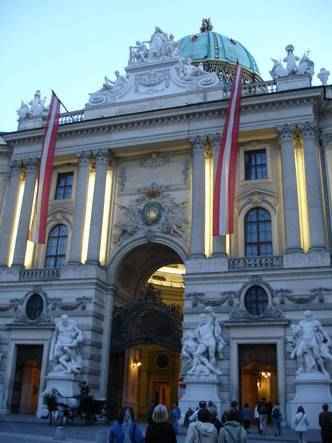
The Hoff Museum, Vienna
1913 France: Raymond Poincare becomes President:
Raymond Poincare, a conservative politician who had been elected president of the French Republic over the objections of Georges Clemenceau and the French Left a month earlier, takes office on this day in 1913.
Known for his right-wing nationalist beliefs and his strong Catholic faith, Poincare served as France's prime minister and foreign secretary before being elected to the presidency. A native of France's Lorraine region, lost to Germany in the Franco-Prussian War of 1870-71, he bitterly hated and feared Germany. As prime minister in the years before World War I, Poincare worked to strengthen France's alliances with both Britain and Russia. While Poincare was convinced that the system of alliances in Europe would preserve the balance of power and avert a war, in reality the solidification of the Triple Entente (an alliance among France, Britain and Russia) in the years before 1914 made Germany increasingly nervous and only intensified the atmosphere of tension that would soon explode into world war.
During the war, Poincare fought to keep a spirit of strong national unity alive and urged France's military and civilian population alike to stand firm against the onslaught of the German enemy. In the spirit of this unity, Poincare appointed his liberal nemesis, Georges Clemenceau, as prime minister in 1917. Though the two men despised each other, they shared a hard-line attitude towards Germany and fought together for strong penalties for the losing nations at the Versailles peace conference, held in Paris in 1919.
Angered by what he saw as excessive leniency towards Germany in the final Versailles treaty, Poincare declined to stand for reelection and returned to the Senate in 1920. He was again appointed prime minister in 1922. In this post, he enforced the payment of German reparations; when the struggling country defaulted, he sent French troops to seize the industrial zones of the Ruhr Valley in January 1923. Poincare stepped down with the victory of a left-wing coalition in 1924, but returned to the post of prime minister in 1926. He would head two more ministries until 1929, when he retired from government service for health reasons. Poincare died in 1934. (History.com)
1915 World War I: Germany's blockade of Britain by submarine begins:
German Admiral Alfred von Tirpitz: The historical decision to make a war zone around the United Kingdom and Ireland was arrived at on the evening of February 2nd in a conference between von Pohl and the Chancellor with the consent of the Foreign Office, in the presence of the Minister of the Home Office, and apparently without opposition from the Grand General Staff. Von Pohl obtained the consent of the Chancellor, who was still sadly unconversant with the world conditions and our own submarine power, and then on February 4th sprang his prepared draft of the declaration of the Emperor while sailing through Wilhelmshaven Harbor. It was disloyal of von Pohl not to consult beforehand with the Secretary of State as to the wording of the draft.
He was also disloyal to me as he had always previously sought my advice in reaching critical decisions. I was entitled to this. His act was, on the whole, the product of boundless vanity. He wished above all that the declaration should be made over his name, and February 4th was the last date on which this could be done, for on that day he took over the command of the High Seas Fleet and was already, strictly speaking, no longer chief of the naval staff. So, against my advice and on the decision of Bethmann-Hollweg, submarine war was to begin, threatening every ship sailing in the direction of Great Britain and Ireland.
Unless the dignity, and therewith the power, of the empire was to be seriously impaired and the confidence of the enemy fatally strengthened, there was nothing for it now but to stand fast.
1918 World War I: Russian Front: The German command launches an offensive along the entire Russian front after the Soviets refuse Germany's terms for peace. 700,000 Austro-German troops are thrown against the newly formed Red Army and begin closing in on Petrograd, Moscow and Kiev
Much of what had been the tsarist empire was now in the hands of the Bolsheviks‑‑except for Poland, western Latvia, and Lithuania‑‑three areas that were occupied by the Germans. Lenin and Trotsky were exultant over the spread of Bolshevik power. But they were still waiting for the rising to take place in Germany in response to Russia's example and withdrawal from the war. Germany and the Soviet regime were still negotiating at Brest-Litovsk, the Germans demanding Poland, Lithuania, part of Belarus, Estonia, and Finland, and for their ally, the Ottoman Empire, the Germans were demanding Batum, Ardahan, and Kars - all parts of what had been the tsar's empire. The Russian delegation, led by Trotsky, walked out of the conference, declaring "no peace, no war."
The Bolsheviks disgusted King Wilhelm of Germany, who saw them as members of a worldwide Jewish and Freemason conspiracy. With his generals he decided to push eastward against the Bolsheviks, and following Trotsky's walkout Germany's armies began taking one Russia town after another. Lenin's exultation turned to fright. He saw Germany as intent upon destroying his revolution, and with others he feared that the Germans would overrun Petrograd. Lenin called for labor battalions made up of "all able-bodied members of the bourgeois class" to dig trenches in front of the city, and anyone resisting this draft was to be shot.
1932 China: The Empire of Japan established Manchukuo, a puppet state in northeastern China, during the Sino-Japanese War.
1933 Press Reaction:
Herr Hitler, at a Nazi election meeting in Stuttgart on Wednesday, [See Feb 15], repeated the hint [that] he gave in his national broadcast last week, that the Government does not contemplate resigning in the event of a defeat at the polls. (The Times, London)
1934 Austria bans the Zionist Labor Organization. (THP) [See: Austria: The Other Germany.]
1935 East Africa: Italy reports sending troops to Italian Somalia:
Italian expansion in Somalia began in 1885, when Antonio Cecchi, an explorer, led an Italian expedition into the lower Juba region and concluded a commercial treaty with the Sultan of Zanzibar. In 1889, Italy established protectorates over the eastern territories then under the nominal rule of the Sultans of Obbia and of Alula; and in 1892, the Sultan of Zanzibar leased concessions along the Indian Ocean coast to Italy. Direct administrative control of the territory known as Italian Somaliland was not established until 1905. The Fascist government increased Italian authority by its extensive military operations.
1936 Various: Nazi Germany: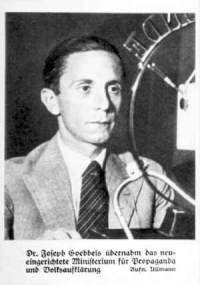
League of Nations: Maj-Gen. Sir Neill Malcolm is appointed High Commissioner for Refugees from Germany. (THP)
Switzerland bans NSDAP propaganda activities nationwide. (THP
1937 Various: Mischlings:
Czechoslovakia signs an agreement with Sudeten Germans guaranteeing them broader minority rights. Although they have comprised the second largest population group since the multi-nation state was founded in 1919, they have been denied official status up to now. Simultaneously the Sudeten Germans and Hitler's government increase their pressure on the government in Prague: Now they demand the Sudetenland's annexation to the German Reich.

1938 Appeasement: Anthony Eden resigns as Foreign Secretary from the Chamberlain government in protest against Britain's continued appeasement of Italy. (THP)
1941 World War II: From official notes of the German naval war staff: "Chief of Naval Operations (SKL) insists on the occupation of Malta even before Barbarossa."
1942 World War II: Various: United Kingdom: Plimsoll lines
Stalin to FDR:
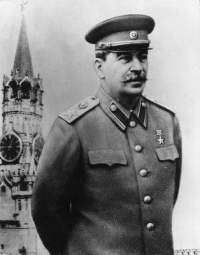
I stress that it is now, when the peoples of the Soviet Union and their Army are bending their energies to throw the Hitler troops back by a tenacious offensive, the US deliveries, including tanks and aircraft, are essential for our common cause and our further success . . . .
Your decision, Mr. President, to grant the Government of the USSR another $1,000,000,000 under the Lend-Lease Act on the same terms as the first $1,000,000,000, is accepted by the Soviet Government with sincere gratitude. With reference to the matter raised by you I would like to say that, in order not to delay decision, the Soviet Government will not at the moment raise the matter of revising the terms for the second $1,000,000,000 to be granted to the Soviet Union nor call for taking due account of the extreme strain placed on the USSR by the war against our common foe . . . the appropriate Soviet agencies are encountering great difficulties as far as shipping the munitions and materials purchased in the USA is concerned. In these circumstances we think that the most useful system is the one effectively used in shipping munitions from Britain . . . the British military authorities supplying the munitions and materials select the ships, supervise their loading in harbor and conveying to the ports of destination. The Soviet Government would be most grateful if the same system of delivering munitions and conveying the ships to Soviet harbors were adopted by the US Government.
Singapore: The Imperial Japanese Army begins the systematic extermination of perceived hostile elements among Chinese Singaporeans. [For further details, Click here.]
1943 World War II: Various : North Africa: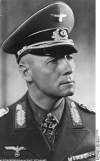
Tunisia was the scene of the first major operations by the Allied Forces (the British Commonwealth and the United States) against the Nazi lead Axis Powers, during World War II. The main body of the British army, advancing from their victory in Battle of el-Alamein under the command of British Field Marshal Montgomery, pushed into Tunisia from the south. The US and other allies, following their invasions of Algeria and Morocco in Operation Torch, invaded from the west.
Goebbels delivers his most famous speech: Total War:I shall remember the heroes of Stalingrad, who put me and all of us under a deep obligation. I do not know how many millions of people are listening to me over the radio tonight, at home and at the front. I want to speak to all of you from the depths of my heart to the depths of yours. I believe that the entire German people has a passionate interest in what I have to say tonight. I will therefore speak with holy seriousness and openness, as the hour demands. The German people, raised, educated and disciplined by National Socialism, can bear the whole truth. It knows the gravity of the situation, and its leadership can therefore demand the necessary hard measures; yes, even the hardest measures. [For the full text, Click here.]
White Rose resistance leaders arrested :

Hans Scholl and his sister Sophie, the leaders of the German youth group Weisse Rose (White Rose), are arrested by the Gestapo for opposing the Nazi regime.
The White Rose was composed of university (mostly medical) students who spoke out against Adolf Hitler and his regime. The founder, Hans Scholl, was a former member of [the] Hitler Youth, [but] grew disenchanted with Nazi ideology, once its real aims became evident. As a student at the University of Munich in 1940-41, he met two Roman Catholic men of letters who redirected his life. Turning from medicine to religion, philosophy, and the arts, Scholl gathered around him like-minded friends who also despised the Nazis; and the White Rose was born.
During the summer of 1942, Scholl and a friend composed four leaflets, which exposed and denounced Nazi and SS atrocities, including the extermination of Jews and Polish nobility, and called for resistance to the regime. The literature was peppered with quotations from great writers and thinkers, from Aristotle to Goethe, and called for the rebirth of the German university. It was aimed at an educated elite within Germany.
The risks involved in such an enterprise were enormous. The lives of average civilians were monitored for any deviation from absolute loyalty to the state. Even a casual remark critical of Hitler or the Nazis could result in arrest by the Gestapo, the regime's secret police. Yet the students of the White Rose (the origin of the group's name is uncertain; possibly, it came from the picture of the flower on their leaflets) risked all, motivated purely by idealism, the highest moral and ethical principles, and sympathy for their Jewish neighbors and friends. (Despite the risks, Hans' sister, Sophie, a biology student at her brother's university, begged to participate in the activities of the White Rose when she discovered her brother's covert operation.)
On February 18, 1943, Hans and Sophie left a suitcase filled with copies of yet another leaflet in the main university building. The leaflet stated, in part: "The day of reckoning has come, the reckoning of our German youth with the most abominable tyranny our people has ever endured. In the name of the entire German people we demand of Adolf Hitler's state the return of personal freedom, the most precious treasure of the Germans which he cunningly has cheated us out of." The pair were spotted by a janitor and reported to the Gestapo and arrested. Turned over to Hitler's "People's Court," basically a kangaroo court for dispatching dissidents quickly, the Scholls, along with another White Rose member who was caught, were sentenced to death. They were beheaded‑‑a punishment reserved for "political traitors"‑‑on February 23, but not before Hans Scholl proclaimed "Long live freedom!"(History.com)
1945 Holocaust: Mixed marriages: More than 500 Jews, hitherto protected because of their marriages to Christians, are seized throughout Germany and deported to Terezin (Theresienstadt). [See: Was the Holocaust Detrimental to Hitler's War Effort?]
1946 Nuremberg Tribunal (Day 61):
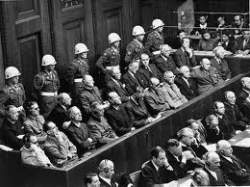
Forty-five minute film introduced by Russian prosecutors, which includes footage from captured German films, showing shocking evidence of atrocities. Professor Dr Herbert Klaus, Counsel for Defendant Schacht, addresses the Tribunal on behalf of the defendants' counsel:
All the defendants are accused of participation in a conspiracy. That is apparently intended to mean that every act brought up in the course of this Trial, no matter by whom it was committed and to whom it was done, is charged against every one of these defendants, and that he can be convicted on every one of these acts. Even though the individual Defense Counsel finds certain fields with which he must concern himself particularly, there are, nevertheless, no fields at all which he can entirely ignore.
1954 Cold War: East and West Berlin drop thousands of propaganda leaflets on each other after the end of a month long truce.
1967 Death: J. Robert Oppenheimer, the "father of the atomic bomb," at the age of 62:
An expert in quantum theory and nuclear physics, he was enlisted into the fledgling U.S. atomic weapons program in 1941. In 1942, the "Manhattan Project," as the program became known, was greatly expanded, and Oppenheimer was asked to establish and direct a secret laboratory to carry out the assignment. He chose Los Alamos, a site in the New Mexico desert that he had visited earlier in life, and together with some of the world's top physicists began work on the bomb. On July 16, 1945, the world's first atomic bomb was exploded at the "Trinity" test site in Alamogordo, New Mexico, and only three weeks later the United States dropped the first of two bombs on Japan. Over 200,000 Japanese eventually perished as a result of the atomic attacks on Hiroshima and Nagasaki.
Oppenheimer regretted the use of the terrible weapon he had helped build, and he worked with the U.S. Atomic Energy Commission (AEC) to win approval for international control of atomic energy. The USSR refused to support the U.S. plan, and in 1949 the Soviets successfully detonated their first atomic weapon. The loss of U.S. atomic supremacy, coupled with revelations that Los Alamos scientist Klaus Fuchs had given nuclear secrets to the Soviets, led President Harry S. Truman to approve development of the hydrogen bomb. Oppenheimer strongly opposed development of the H-bomb, which was theorized to be hundreds of times more powerful than the bombs dropped on Japan. On November 1, 1952, the first "superbomb" was successfully detonated in the Pacific.
In 1953, because of both his opposition to the hydrogen bomb and his admitted leftist leanings in the 1930s, Oppenheimer lost his security clearance and was ousted from the AEC. The case stirred wide controversy, and many people came to his defense. After leaving the government, he returned to teaching. He died in 1967. (History.com)
Edited by Levi Bookin (Copy editor) Click to join 3rdReichStudies FAIR USE NOTICE: This site may contain copyrighted material the use of which has not always been specifically authorized by the copyright owner. We are making such material available in our efforts to advance understanding of historical, political, human rights, economic, democracy, scientific, environmental, and social justice issues, etc. We believe this constitutes a 'fair use' of any such copyrighted material as provided for in section 107 of the US Copyright Law. In accordance with Title 17 U.S.C. Section 107, the material on this site is distributed without profit to those who have expressed a prior interest in receiving the included information for research and educational purposes. If you wish to use copyrighted material from this site for purposes of your own that go beyond 'fair use', you must obtain permission from the copyright owner. Please note that the list-owner and the moderator are not responsible for, and do not necessarily approve of, the random ads placed on our pages by our web server. They are, unfortunately, the price one pays for a 'free' website.
levi.bookin@gmail.com






